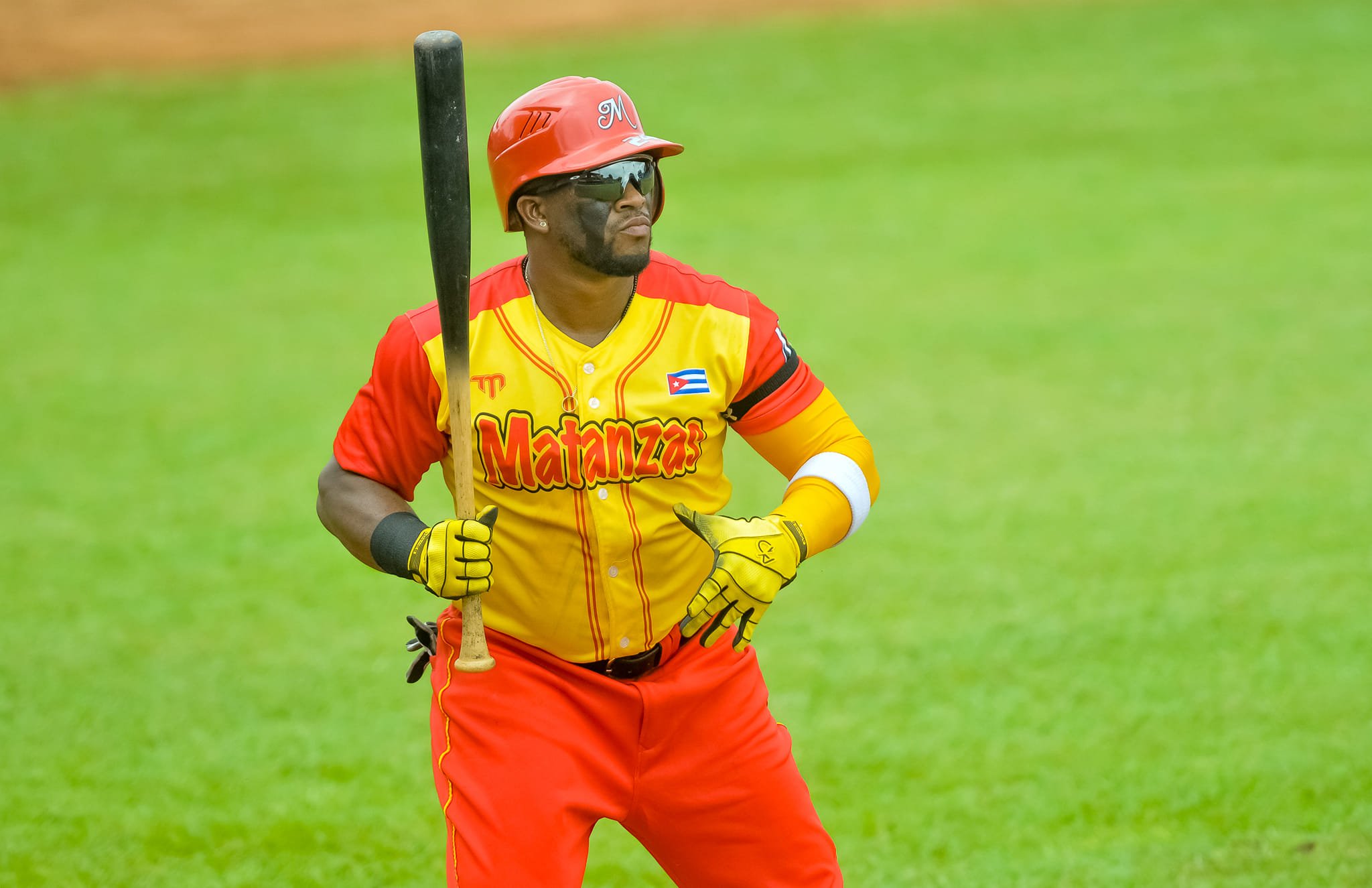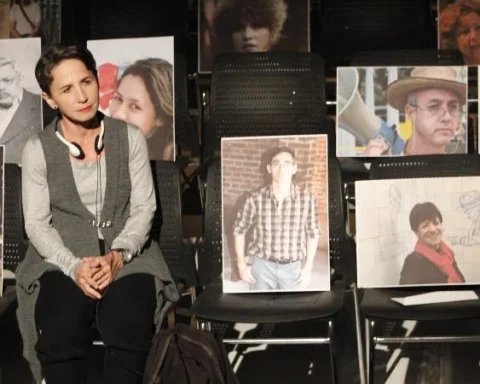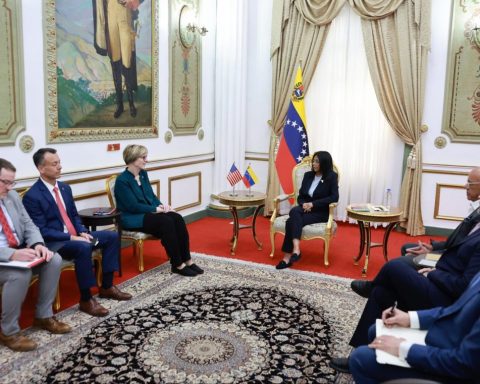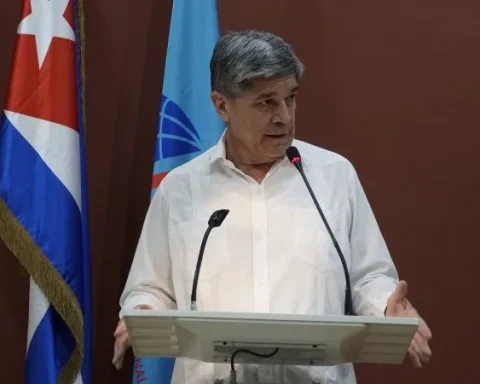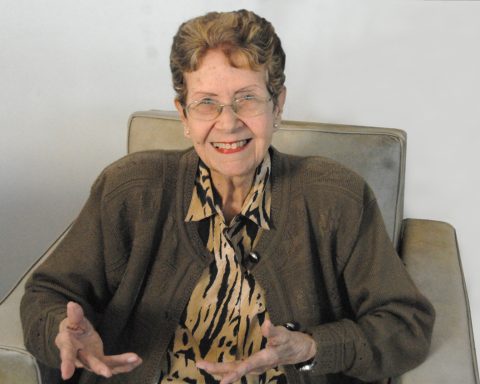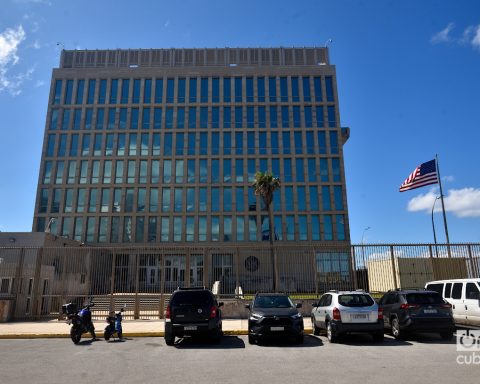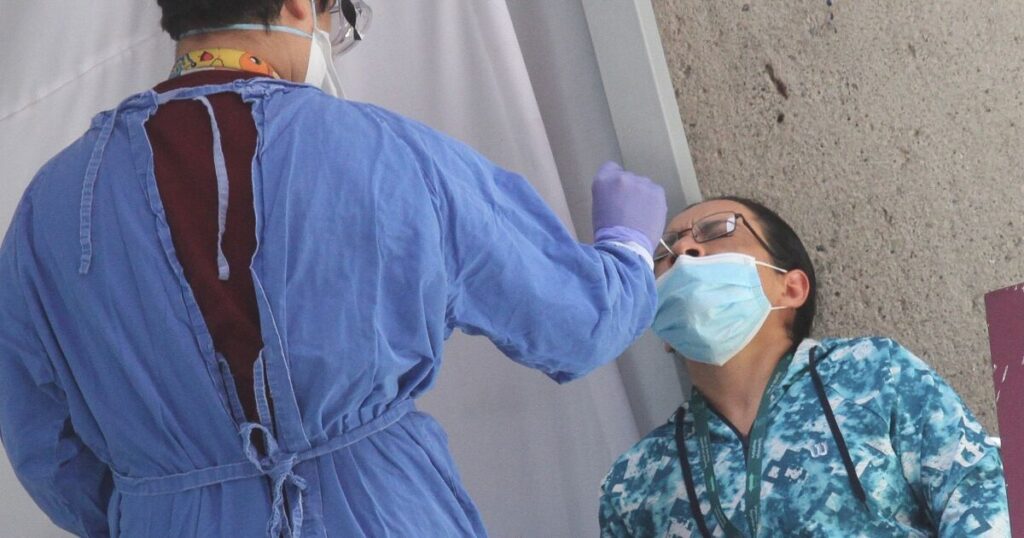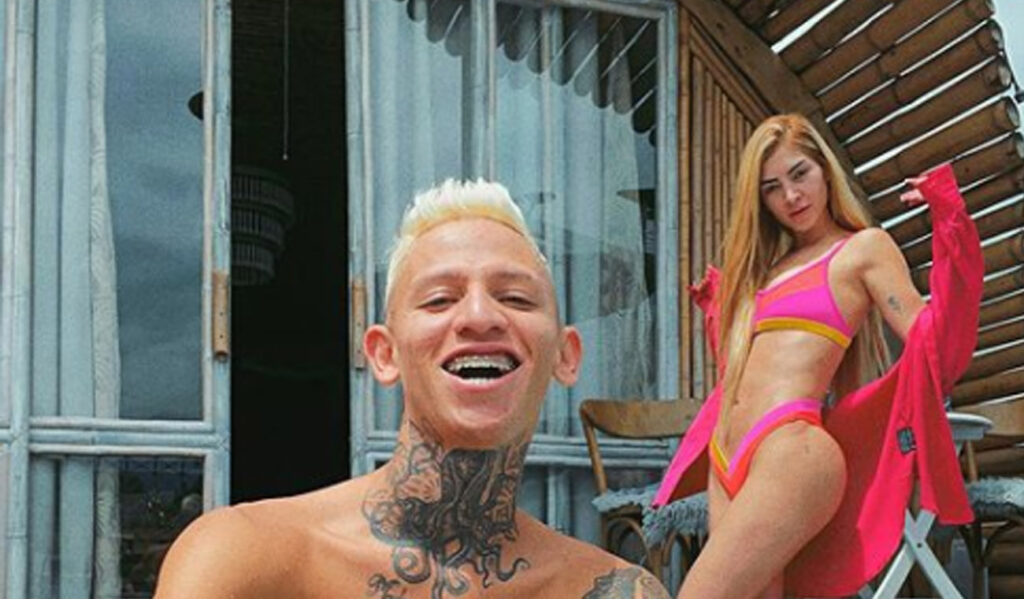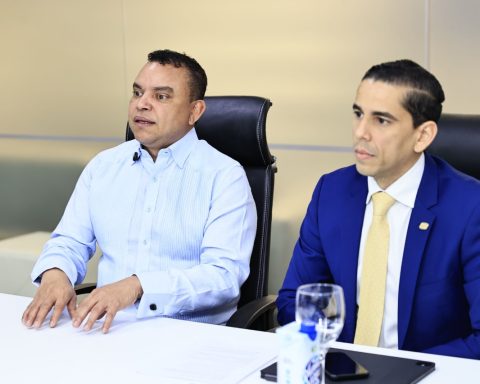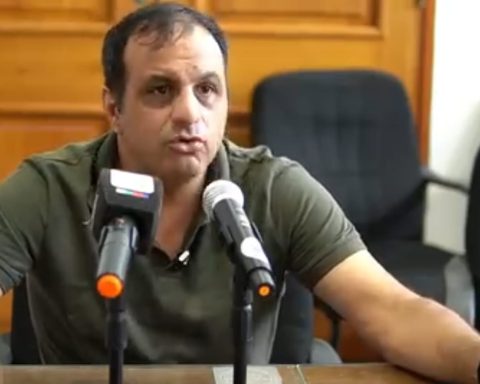Yadir Drake (Pueblo Nuevo, 1990) is a professional baseball player, from the cap to the spikes, as old-school baseball fans say. The man from Matanzas emigrated from Cuba more than a decade ago, signed with the Dodgers, struggled to reach the Major Leagues and, although he did not make it, continued battling in the diamonds of Venezuela, Japan and Mexico to earn a living doing what he does best. : play ball.
Drake has been one of the names of Cuban baseball in recent times. His decision to return to play in the National Series with the Crocodiles squad and his subsequent call to the Cuban team that participated in the Americas Pre-Olympic, aroused tremendous expectation during 2021, largely due to the star lineup that the yumurino had acquired in his time through the different professional circuits, mostly in Mexico.
His easy-going character, contagious energy and cheerful style on the pitch also allowed him to create a quick connection with the fans, even though his first experiences in last year’s domestic classic were, precisely, with empty stadiums due to the pandemic. Regardless of that, “La Pantera” felt sheltered after hundreds of messages on social networks that congratulated him for fulfilling his dream of wearing the Matanzas jacket again.
“I’ve said it many times. I am here largely because of my grandmother and my family, who have never seen me play in the National Series and have not had the opportunity to watch my games live in Mexico or another country. Just a few short videos and that’s it. I have always thought that, if this is my country, I have the right to return, all of us who are abroad have that right. Here I became a ballplayer. It is true that I was shaped in other places, but Cuba was where I was trained, not in Venezuela, not in Mexico, not in Japan, not in the United States”, he confessed to me in March 2021 in an exclusive interview.
But the most shocking thing about Drake is that he did not come to Cuba to pay off an outstanding debt and return without looking back. Nothing is further from reality. After his reinstatement in 2021, the versatile player has shown us that dreams can be fulfilled over and over again, in fact, with his attitude he has put a clear message on the table: we should never stop fighting to repeat our fantasies.
With that mentality, Drake began playing the 61st National Series in front of the Matanzas fans, who felt in his soul when the leader of the ninth had to go to Mexico to join the discipline of the Leones de Yucatán, a club with which he had already made a formal commitment for the 2022 season. Although he had to leave at the most complex moment of the campaign for the Crocodiles, the boy from Pueblo Nuevo did not close the door to a possible return, in fact, the Matanzas high command never gave him drops from the roster, and in the end he had the opportunity to cross paths again.
In an unprecedented act, full of infinite love for the jersey, dedication, camaraderie and loyalty, Drake got on a plane last Saturday at dawn and undertook a trip to Cuba to support Matanzas in the final of the national baseball classic, taking advantage a brief break from the Mexican League for the All-Star Game.
He landed in Holguín in the middle of the morning, took the road to Bayamo and at two in the afternoon he was under the bloody eastern sun, with his red and yellow shirt number 52, contributing to the Yumurian cause. His determination caused a stir and everyone identified with a tremendous lesson in humility. No one forced him to come, no one paid him anything; he, by his own inspiration, paid a ticket and stood in the center of the diamond to fight for his people, for his land.
Unfortunately, his club in Mexico demanded that he return to Aztec lands this Tuesday, limiting his presence in the Cuban final to just one game, in which, by the way, Matanzas won the victory. Drake did not give hits, but he played hard, made the rival uncomfortable and in the epilogue, to finish off, he negotiated a walk and scored the tying run with a great run from the initial after a hit by Yariel Duque.
However, under the standards applied in Cuba since 1959 and until just a few years ago, Yadir Drake, who has played as a professional in the last eight seasons, would be nothing more than an “instrument of the exploiters” or an “exploited athlete.” . For a long time, those were the terms that were used on the Island to (dis) qualify professional baseball players and athletes, who “stopped playing for the love of the sport and only cared about their means of subsistence,” giving life to the system exploitation of man by man.
That philosophy prevailed in Cuba for decades, it was established as the emblem and slogan of the national sports movement, from where an unquestionable idea was sold and defended: being a professional meant making a pact with the devil, being a slave and, in the worst case, to be a traitor
Nobody defines the above better than Agustín Marquetti, one of the legends of Antillean baseball during the 60s, 70s and 80s of the last century, and, therefore, one of the symbols of amateurism that set the guidelines for Cuban sport.
“For us, talking about professionalism was taboo, impossible. Many of the times I was out of Cuba, the scouts were behind us and tried to sign me, but for an ideological reason one didn’t even think about it, it was inconceivable. It’s that, if you stayed out or tried to play professionally, they hung the traitor’s sign on you”, Marquetti told us in a interview.
Although radical, that way of thinking and that way of acting could have made a bit of sense after the rise to power of Fidel Castro in January 1959, when a new social model began to be established in the country. In this framework, nothing related to the United States was well seen, and the professionals fell into the sack.
The worst thing is that this idea or ideal was perpetuated over time. For more than half a century caprice and pride prevailed over common sense, there was no modification of thought, there was no adaptation to circumstances, there was no evolution, and there was also no vision that athletes trained in Cuba, in the long run, they would become professionals by trade, even if they remained linked to the national sports movement. Today we can see…
After many blows, that reality has gradually changed. Today we understand it as normal that Cuban athletes are contracted to big clubs in the best professional platforms in the world, but at another time —not as far away as some would have us believe—, Alfredo Despaigne, Liván Moinelo, Arlenis Sierra, Robertlandy Simón, Miguel Ángel López, Julio César La Cruz or Roniel Iglesias, all with experience in rented circuits, could be considered mere “exploited athletes” for a series of noble sins: going out to compete, representing their country and being paid for their work.
In baseball, things were taken to the extreme, and in the process hundreds of professional athletes were disrespected, who were labeled as slaves, submissive and even mercenaries, without considering that they, as much as the amateurs, needed support. an impeccable work ethic, dedication and sacrifice to prevail in an extremely competitive scenario.
Engraved in the memory of many people are the words of Fidel Castro at the inauguration of the National Series in 1962, when —in different circumstances— a limit was marked that took us more than half a century to cross:
“One day the Yankees will have to come to play ball with us and then what the Revolution is will be demonstrated, how the Revolution can make such magnificent ballplayers, who can beat a system that exploits the athlete; how can the free athlete beat the exploited athlete, the athlete who cannot be sold on the market nor can he be sold to capitalist companies, can defeat the athlete who is subjected to those humiliating conditions without moral stimuli of any kind”, said the then Prime Minister of the revolutionary government.
Certainly, it has been shown that Cuba can train magnificent players, it has been shown that we can compete and beat the United States or any other country that has had professionalism as a reference, but it has also been shown that our players can succeed as professionals without being humiliated. , without losing their moral qualities and without losing their human values. Yadir Drake is probably the most eloquent of examples.
